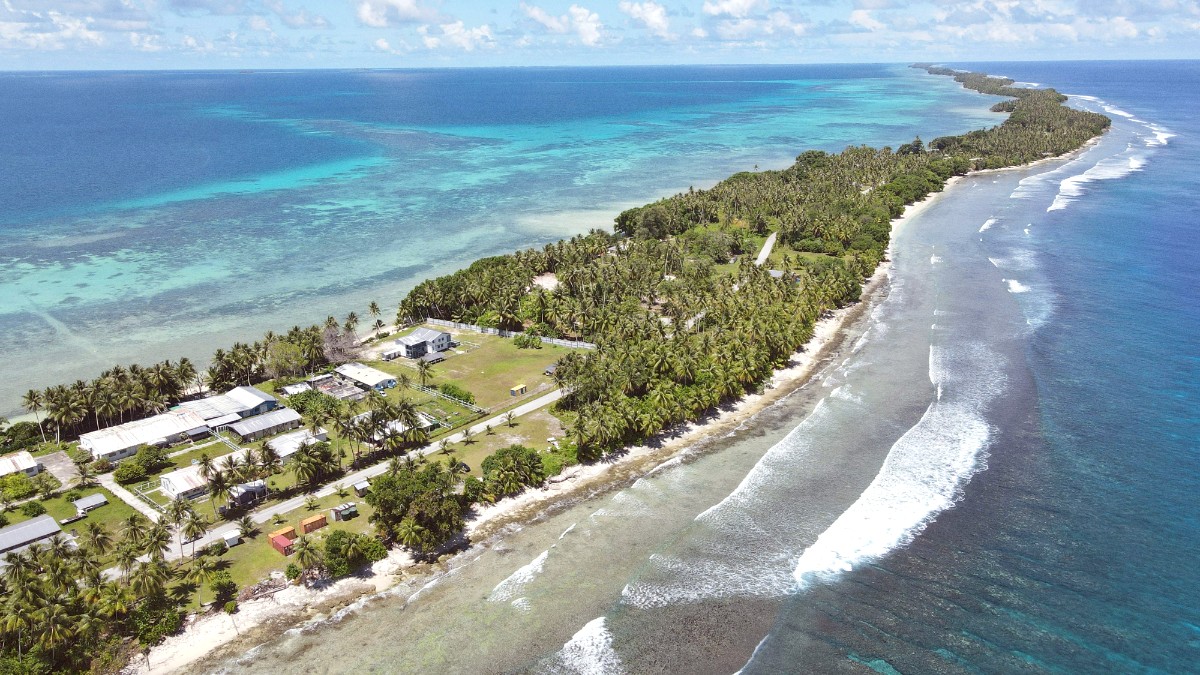
Funafuti International Airport (FUN) is the only international airport in Tuvalu. It sits on Fongafale islet, the main island of Funafuti atoll. The airport is small, with a single runway that also functions as a public road and recreational area when no flights are scheduled.
No direct flights from major global hubs; all international flights connect through Fiji (often via Nadi then Suva). Plan for a multi-leg journey. Funafuti International Airport is a very small airport with basic facilities. No duty-free shops, extensive restaurants, or lounges.
Flight prices do not fluctuate significantly by season due to fixed, low-frequency schedules.
Most accommodations are a short walk or taxi ride from the airport terminal.
Confirm baggage allowances with Fiji Airways, as limits are often stricter for smaller aircraft.
Most accommodations are a short walk from the terminal.
Taxis are usually available for arriving flights, waiting outside the terminal.
Many guesthouses arrange pickup services for arriving guests.
Motorbike/scooter rental is the common form of self-driving for tourists on Funafuti. Rentals are available from guesthouses or local individuals. Inquire at your accommodation upon arrival. A valid national driving license with a motorcycle endorsement (if applicable) is generally sufficient. No special permits for tourists are typically required. Driving is on the right-hand side of the road.
The main road on Fongafale is a single paved stretch running the length of the islet. While generally manageable, it can have rough patches and potholes. Speed limits are low, and traffic moves slowly. Be aware of pedestrians, children playing, dogs, and other motorbikes. Night driving can be challenging due to limited street lighting outside the main Vaiaku area.
Tuvalu, as an island nation composed of small atolls, lacks land borders, trains, and long-distance bus services. Its small land area and the nature of the atolls make such transport impractical.
Local movement on Fongafale relies on smaller vehicles or personal transport. The main islet, approximately 12 kilometers from end to end, is suitable for these modes.
Regular international sea arrivals for tourists are not a common mode of transport to Tuvalu. Occasional cargo ships or private yachts might call at Funafuti. Funafuti possesses a small port facility mainly for cargo vessels and local inter-island traffic.
Tuvalu is an atoll nation with no rivers or significant freshwater waterways. All water transportation relates to the ocean or the central lagoons of the atolls. For private yachts or unusual sea arrivals, immigration and customs procedures are handled at the port in Funafuti, similar to air arrivals.
Local cargo and passenger vessels connect Funafuti with outer islands, but schedules are infrequent and subject to change.
Chartering local boats is the main way to explore Funafuti's lagoon and outer islets.
Distances within Fongafale are short, making transfers from the port quick and convenient.
Tuvalu does not levy a specific departure tax separately from the airfare. Any applicable taxes are typically included in your flight ticket price at the time of purchase. Confirm this with your airline or travel agent when booking. Arrive at Funafuti International Airport (FUN) approximately 2 hours before your scheduled departure time.
The departure area at Funafuti International Airport is very basic. It offers limited seating. You will not find shops, restaurants, or extensive amenities beyond security. It is advisable to eat or purchase any necessary items, like bottled water or snacks, before arriving at the airport.
Confirm your flight schedule the day before departure.
Check with your guesthouse or the airline office.
Flight times can occasionally shift in Tuvalu.
The airport runway is a central community space. When no flights operate, locals use it for sports and gatherings. Be mindful of this unique characteristic, but also aware of announcements when a flight is due.